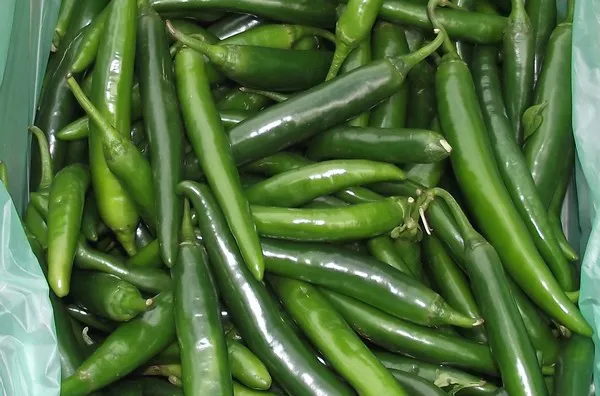While the past year has presented a lot of challenges brought on by the COVID-19 pandemic, particularly on the export front, a leading Australian fresh produce company says the current environment is "more opportunistic than ever".
Trent De Paoli, from DePaoli Orchards, works with both fresh and value-add products and says while he has not experienced as much of a dramatic impact that other exporters have faced, it is important to remain flexible and have honest discussions with customers.
"I think adversity creates opportunity, and I think that the knocks on the door and the opportunities that are happening now didn't exist 12 months to two years ago," he said. "We are all in the same shoebox globally, in terms of the pandemic, so we are all talking the same language. That openness, inquisitiveness and discussions are higher and more elevated than they were before. I think that provides a greater opportunity. So, short term loss for a long term gain. From a global perspective, through the businesses that I own, we haven't really seen any impact and that is in the value-add space through non-perishable products, but I think it will all turn into a positive opportunity. But logistics when trying to manage a perishable product is certainly a challenge, but I have a saying 'remain flexible to remain relevant'. You have to have flexibility. This is not just an Australian issue, it's a global issue, so the understanding is there. It's about having those honest communications; you keep your core customers that are well connected, and it's the 80-20 rule, where people come in and out. But for your core base, the trust and relationships are always there."

Photo: Trent De Paoli, DePaoli Orchards; Ryan McLeod, Dicky Bill Australia; Ryan Densley, Moffatt Fresh Produce; Michael Coote, AUSVEG; Dianne Tipping, Export Council of Australia.
He added that the AustChilli Group produces over 80 per cent of the country's fresh chillis into Coles and Woolworths supermarkets and does B-to-B ingredient exports, with fruit and vegetable value-added pastes. The company also founded AvoFresh (an avocado in a tube product). Mr De Paoli noted that his domestic sales are a lot higher than export, but says that international supply is important from a diversification and market expansion perspective.
"There's only so far you can go on a domestic-front - there are only around 25 million or so people living here," he said. "So, you either go horizontally or vertically, and what I mean is adding on more skews and going with a range extension strategy, and leverage your products into new markets. But I am very much against the 'parachute drop' strategy in markets, you really have to understand the customer. I am all about the customer; I understand their needs and work backwards. I call it the demand chain, not the supply chain. So, we really need to understand what is going to work in that environment for that taste, that profile, that habit. It is not a one-sized shoe fits all."
AUSVEG Chief Executive Officer Michael Coote, who was the peak vegetable body's former National Manager - Export Development until July this year, told this year's Hort Connections that with all the disruptions, last year's exports were only down 6.6% across the category.
"With all of the difficulties that COVID threw up, and the difficulties at the start of the year with the disruptions with the drought and bushfires, we still managed to 216,000 tonnes of vegetables exported, worth around $263million to over 50 countries," Mr Coote said. "To be down only around 6-7 per cent is a very positive outcome. With vegetable trade compared to fruit trade, it is nearly all to non-protocol markets - there are only four protocols for specific fresh vegetable exports into specific markets and the rest is pretty open. Across the category, we have pretty good market access to most markets."

Mr Coote is encouraging vegetable producers to continue to consider exporting, despite the challenges thrown up by the pandemic, explaining that the pandemic-affected conditions will not be around forever, and the vegetable category is not going to grow as much domestically compared to exports. AUSVEG does not want the current situation to impact a producer's decision not to export their vegetables.
"There is only a certain amount of the pie and growth opportunity, and that is going to come from international markets," he said. "There are a lot of challenges, but there is also a lot of support available. The last thing that we want is for people to give up on it because it is too hard, too difficult, or too costly. There is a huge growth opportunity there; it is different (levels) for different products across the category and different vegetables have different opportunities. We need to see growth in the industry, and that will come from export markets."
Dicky Bill Australia is a supplier of high-quality leafy salad vegetables, as well as ready herbs and salad kits and bowls across 12 months of the year, with two farms in Victoria and Queensland producing around 100 tonnes of salad leaves every week. Director Ryan McLeod says the company has expanded rapidly over the past 25 years, initially that was to keep up with domestic demand, but in 2016 started looking for new markets overseas. Since the COVID pandemic, he describes the company as having a foot in the door to try and maintain as much international customers as possible but is not actively trying to grow.
"It's just too difficult at the moment, with the limited space on flights, and you cannot have the consistency if you want to have new relationships," he said. "We are looking at servicing the customers we have got. To be honest, they have fallen, but we are fairly lucky that we are new to the export game, and it wasn't a large part of our business, so it hasn't hurt us as much as it could have. We still want to export, but we see it as being a bit difficult until some normality returns. We'd like to see more availability of flights, as our products are highly perishable and we are 100 per cent airfreight. The biggest concern that we have had is the availability of flights and consistency. It's not just a matter of having a flight available the next day; you have to have the product in the market in time to make that flight. So you need to plan it out, but we are not getting confirmation of flights until 48 hours before."
